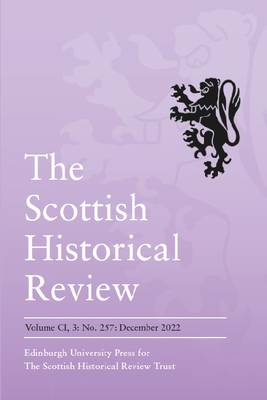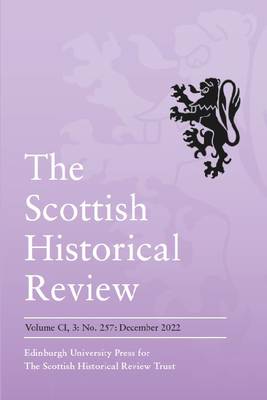
- Retrait gratuit dans votre magasin Club
- 7.000.000 titres dans notre catalogue
- Payer en toute sécurité
- Toujours un magasin près de chez vous
- Retrait gratuit dans votre magasin Club
- 7.000.0000 titres dans notre catalogue
- Payer en toute sécurité
- Toujours un magasin près de chez vous
The Declaration of Arbroath, 1320-2020
Scottish Historical Review: Volume 101, Issue 3
Description
In 1977 Grant Simpson published a seminal article in the Scottish Historical Review: which asked if 'anything conceivably new can be said about a document so well known in Scotland as the Declaration of Arbroath?' The contributors to this volume demonstrate that there can. The text of the Declaration, written in 1320, followed closely an Irish prototype and was structured in the fashion that was expected at the papal court, where the letter was sent. It drew heavily on political ideologies and legal concepts with which English and continental intellectuals were familiar. And it was brought to papal attention through diplomatic means and practices which were commonly understood across Europe. Although the Declaration disappeared from political discourse in the centuries which immediately followed its dispatch, its rediscovery from the later seventeenth century is traced in hitherto unprecedented depth. Its relevance was not just to Scotland. The question of whether it influenced the American Declaration of Independence has oft been mooted but is here closely investigated. Today the Declaration remains a controversial document, inspirational to many, misappropriated by others, and even feared by some.
Spécifications
Parties prenantes
- Editeur:
Contenu
- Nombre de pages :
- 202
- Langue:
- Anglais
- Collection :
Caractéristiques
- EAN:
- 9781399512619
- Date de parution :
- 28-12-22
- Format:
- Livre broché
- Format numérique:
- Trade paperback (VS)
- Dimensions :
- 156 mm x 234 mm
- Poids :
- 318 g

Les avis
Nous publions uniquement les avis qui respectent les conditions requises. Consultez nos conditions pour les avis.





